Thirteen dialogue sessions and youth workshops, organized by the TRENDS Youth Council in cooperation with Abu Dhabi Youth Councils, affirmed that engaging young people in shaping sustainable water solutions is a strategic step toward ensuring a safer and more sustainable future. Held on the sidelines of the fifth Annual Conference on Sustainable Water Security, these activities provided a platform to highlight youth innovation and present practical projects and ideas to address the challenges of water scarcity.
Smart Systems and Sustainable Agriculture
This session discussed the role of smart systems and modern technologies in supporting sustainable agriculture in Abu Dhabi by developing innovative solutions that enhance water efficiency and reduce waste. It underscored the importance of investing in technology to strengthen the capacity to meet food and water security needs. The discussions also stressed the necessity of involving youth and researchers in adopting innovative agricultural practices that respond to water scarcity, making Abu Dhabi a leading regional model in combining technology and sustainability to achieve long-term water security.
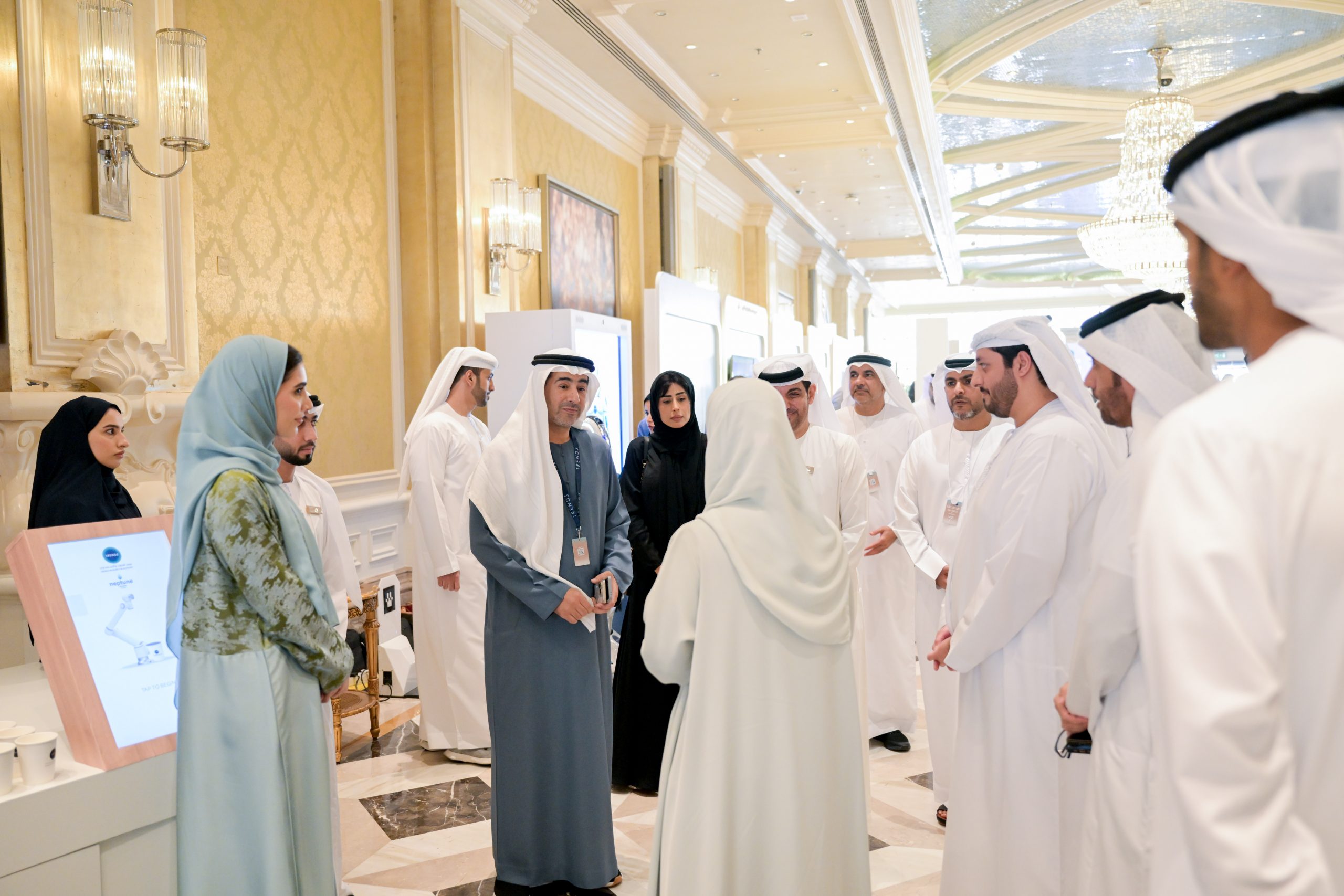
The UAE’s Hydrogeological Map
This session presented a pioneering project to develop a comprehensive hydrogeological map of the United Arab Emirates, enabling decision-makers to understand better groundwater resources and how to manage them efficiently. The project aims to build a robust scientific database for future water security planning. Participants confirmed that this initiative reflects the UAE’s commitment to adopting scientific and innovative solutions to environmental challenges, serving as a strategic tool to support national water policies and ensure sustainability for future generations.
Neglected Resources
This session examined ways to transform neglected environmental resources—which threaten water security—into innovative opportunities that can strengthen sustainability. Practical examples were presented on repurposing such resources within a framework that connects the present with cultural heritage. Discussions focused on the role of youth in reviving traditional solutions and merging them with modern technologies to create innovative responses to water challenges, opening new horizons for enhancing water security from both environmental and cultural perspectives.
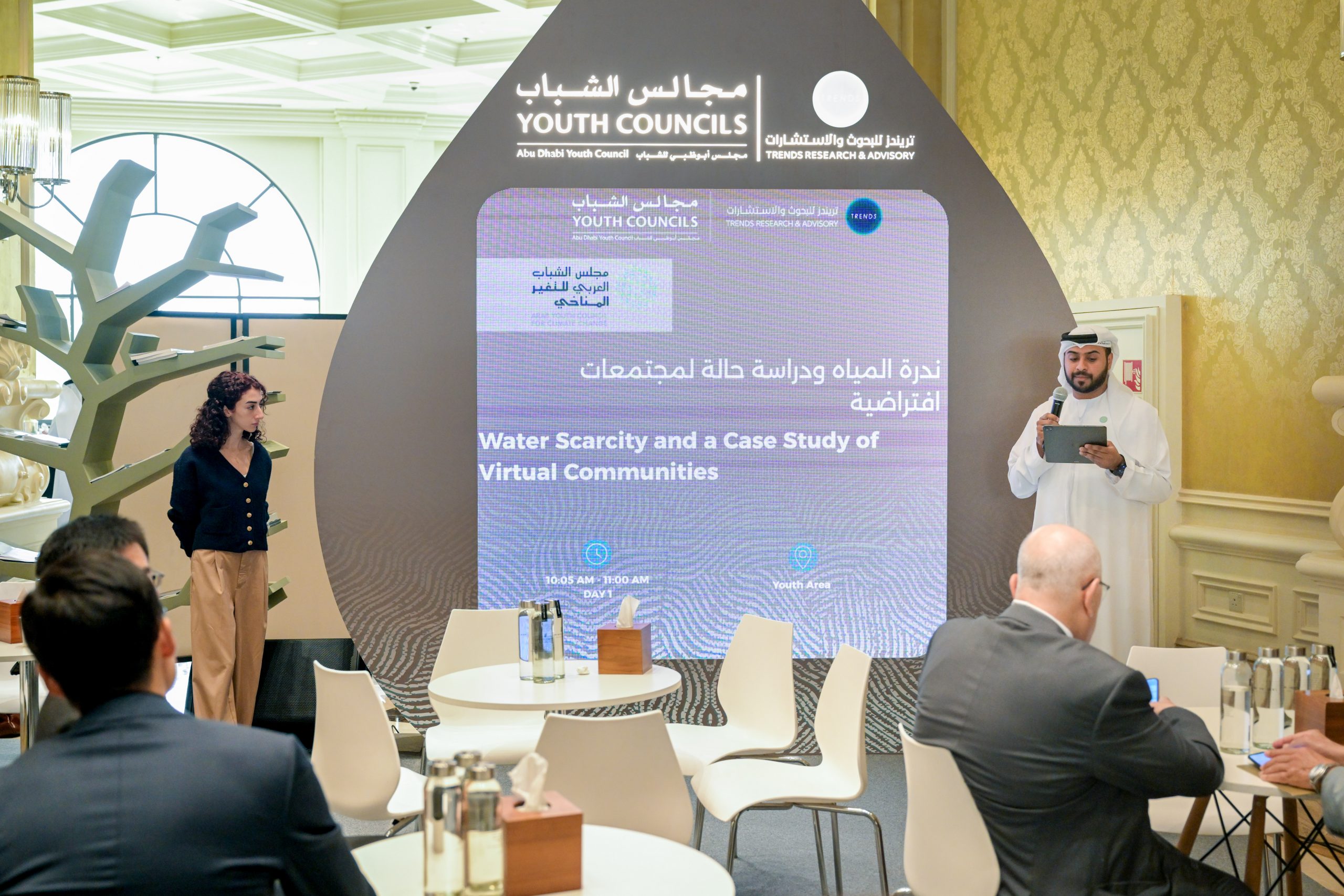
Reverse Osmosis
The workshop demonstrated reverse osmosis technology and its role in strengthening water sustainability through efficient desalination. Participants learned about the technical and economic aspects of this modern technology. The workshop also highlighted future opportunities for expanding the use of reverse osmosis in the region, stressing its importance in addressing natural resource scarcity and meeting the growing demand for freshwater.
Protecting Our Future
This session addressed the environmental risks of seawater pollution and its direct impact on water security. It emphasized the need to adopt strict policies to protect the marine environment and enhance cooperation between government and private institutions. The session also called for raising community awareness about preserving the aquatic environment as a fundamental pillar for ensuring sustainable water resources while reinforcing youth involvement in preventive environmental initiatives.
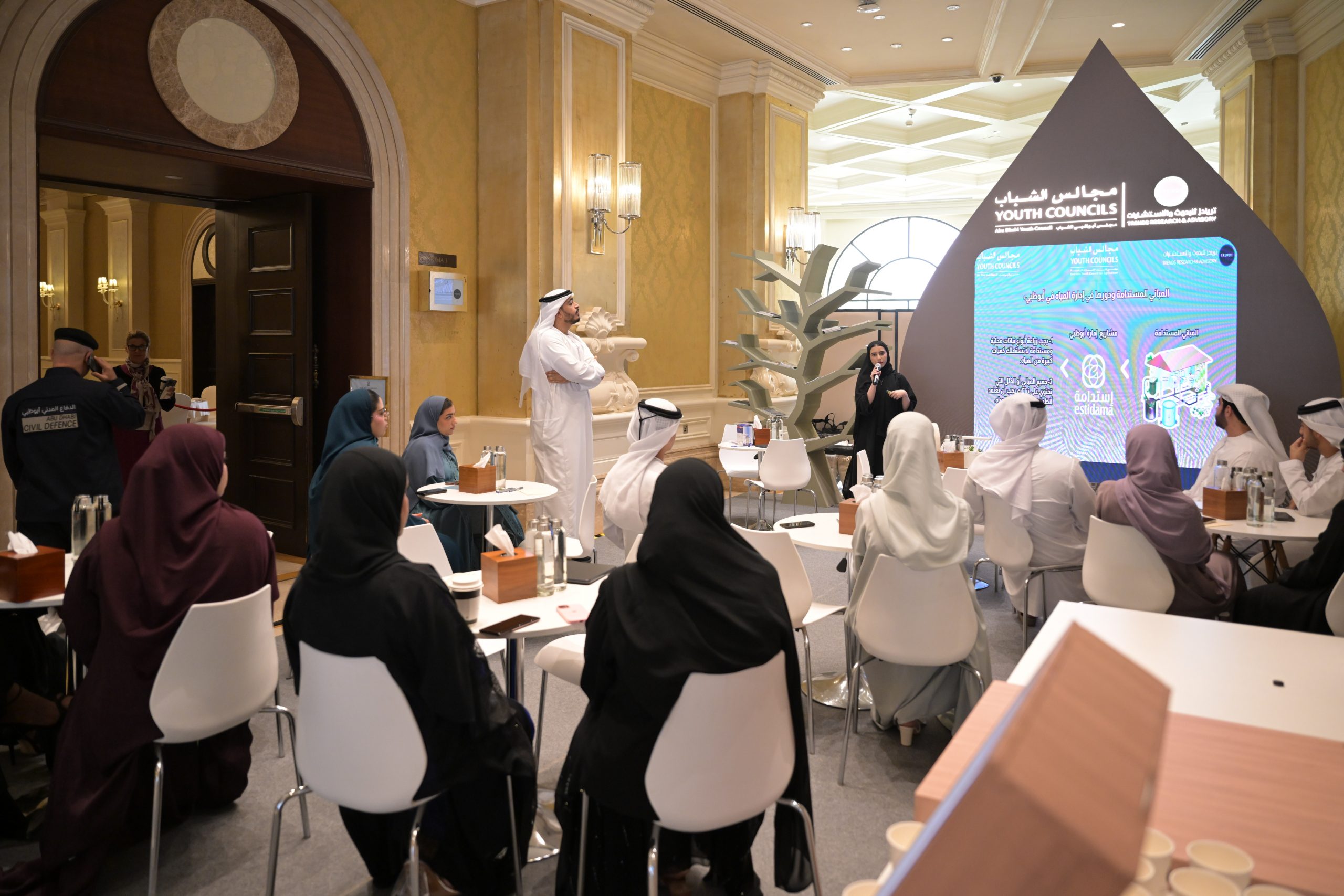
AI and Water Security
This session explored multiple artificial intelligence applications in monitoring and managing water resources efficiently—from demand forecasting to improving distribution networks and reducing losses. Speakers affirmed that integrating AI into the water sector is a strategic choice that strengthens countries’ ability to face climate change while ensuring resource sustainability for future generations.
The Sheikh Zayed Desert Learning Centre Experience
This session highlighted how the Sheikh Zayed Desert Learning Centre is a unique educational and awareness model in promoting sustainability and protecting natural resources. The experience illustrated how scientific research and environmental education can be combined to strengthen community awareness. Discussions also emphasized the Centre’s role in instilling values of sustainability among new generations through interactive educational programs that inspire youth to adopt responsible practices that protect water and the environment.
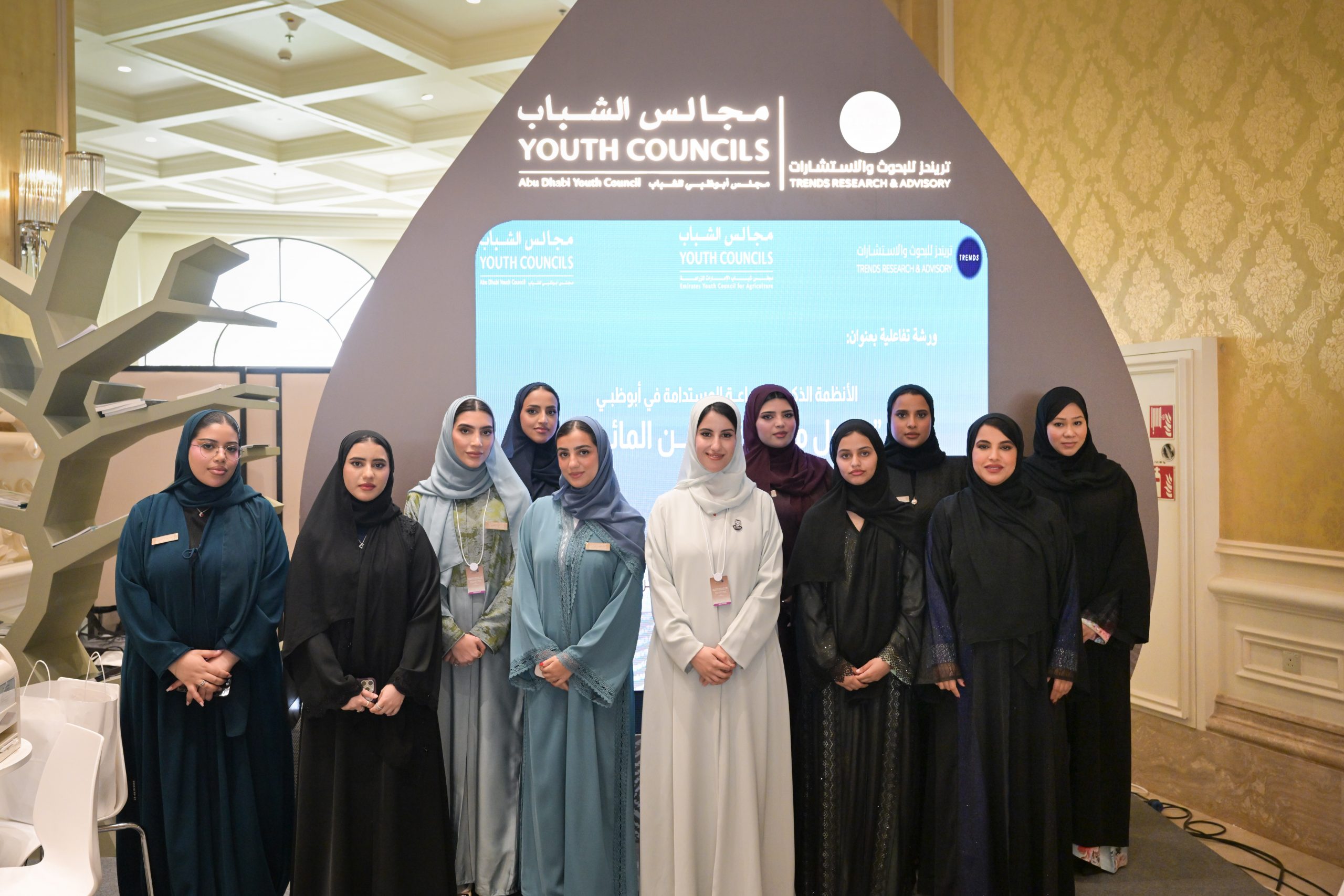
Agents of Change
This session underscored the importance of empowering youth to be change-makers in water security issues, through hands-on activities and practical adventures that strengthen their leadership and creativity skills. Discussions showed how field experiences help build a deep understanding of water challenges. It was also noted that engaging youth in innovative environmental adventures opens new avenues for generating creative ideas and enhances their commitment to turning these ideas into practical projects that address water scarcity.
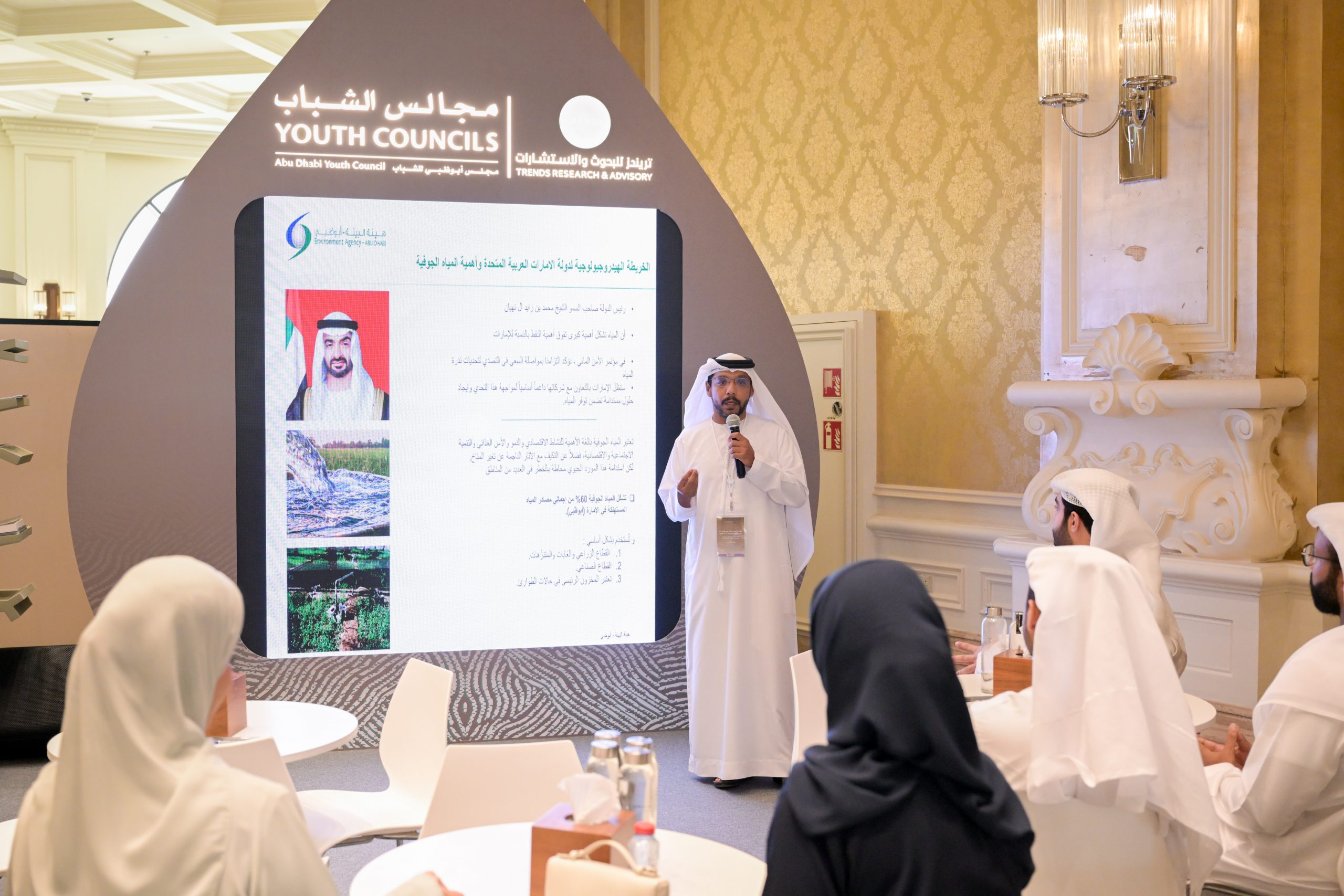
Sustainable Habits for Water Conservation
This workshop affirmed that building simple and effective daily habits for water conservation can make a tangible difference in enhancing water security. Participants were presented with practical challenges aimed at embedding sustainable behaviors. The session also emphasized that involving society and youth in competitions and innovative awareness campaigns reinforces a culture of environmental responsibility, making water conservation a lasting collective practice.
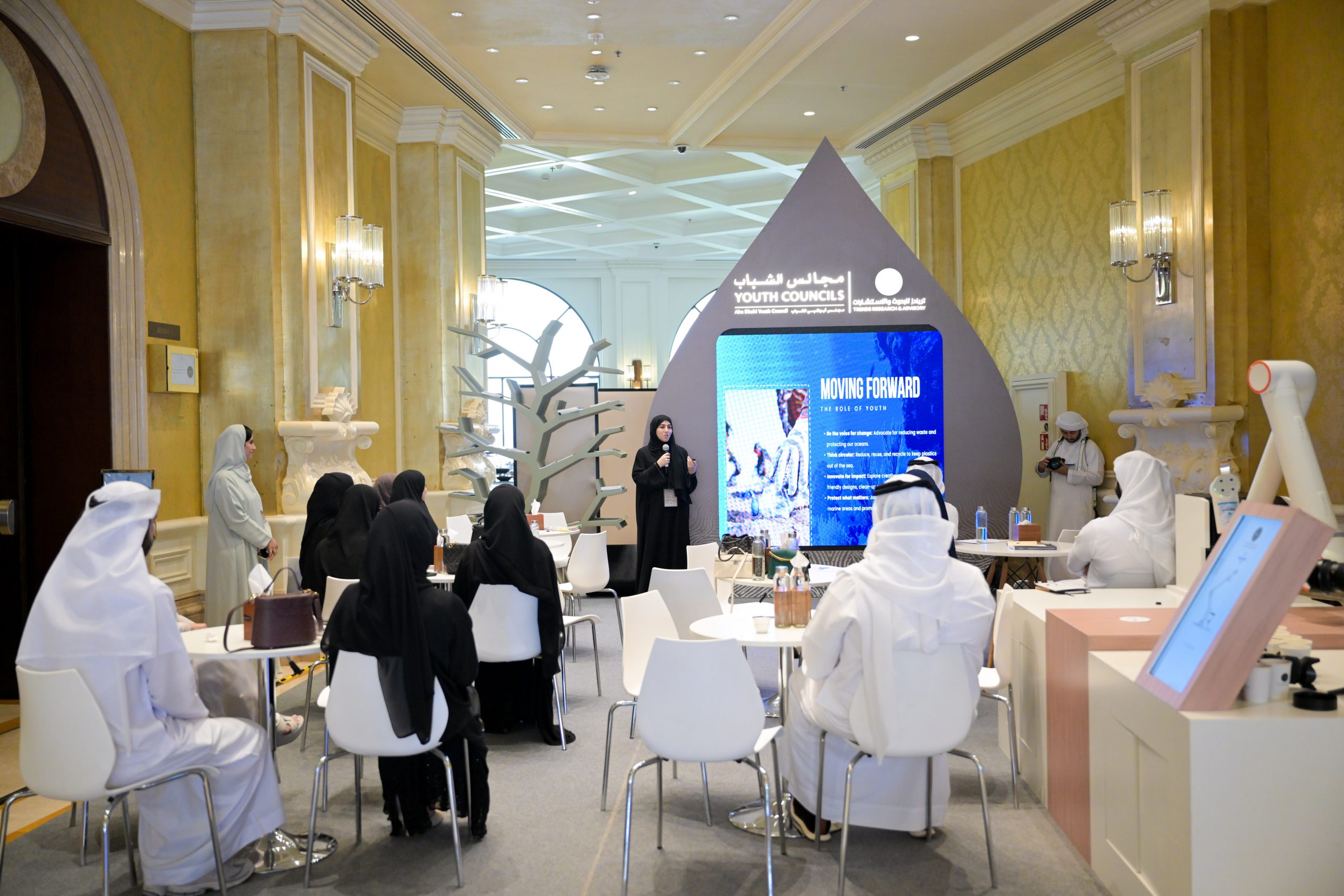
Entrepreneurship Opportunities
This session emphasized innovation and entrepreneurship in the climate and water fields are fundamental pillars of a sustainable future. It highlighted initiatives the Hub71 + ClimateTech program provided to support youth in turning their ideas into impactful projects. The discussions also examined the importance of cooperation among innovators, startups, and government institutions to drive innovation and promote innovative solutions that strengthen water security and mitigate the effects of climate change.
The Journey of Water Desalination Technologies
This session noted that desalination is one of the most strategic solutions to meet the increasing demand for freshwater in the region. It traced the stages of desalination technology from its early beginnings to the latest advancements. The discussions also stressed the importance of foresight in developing more efficient and cost-effective desalination techniques that keep pace with population growth and development needs.
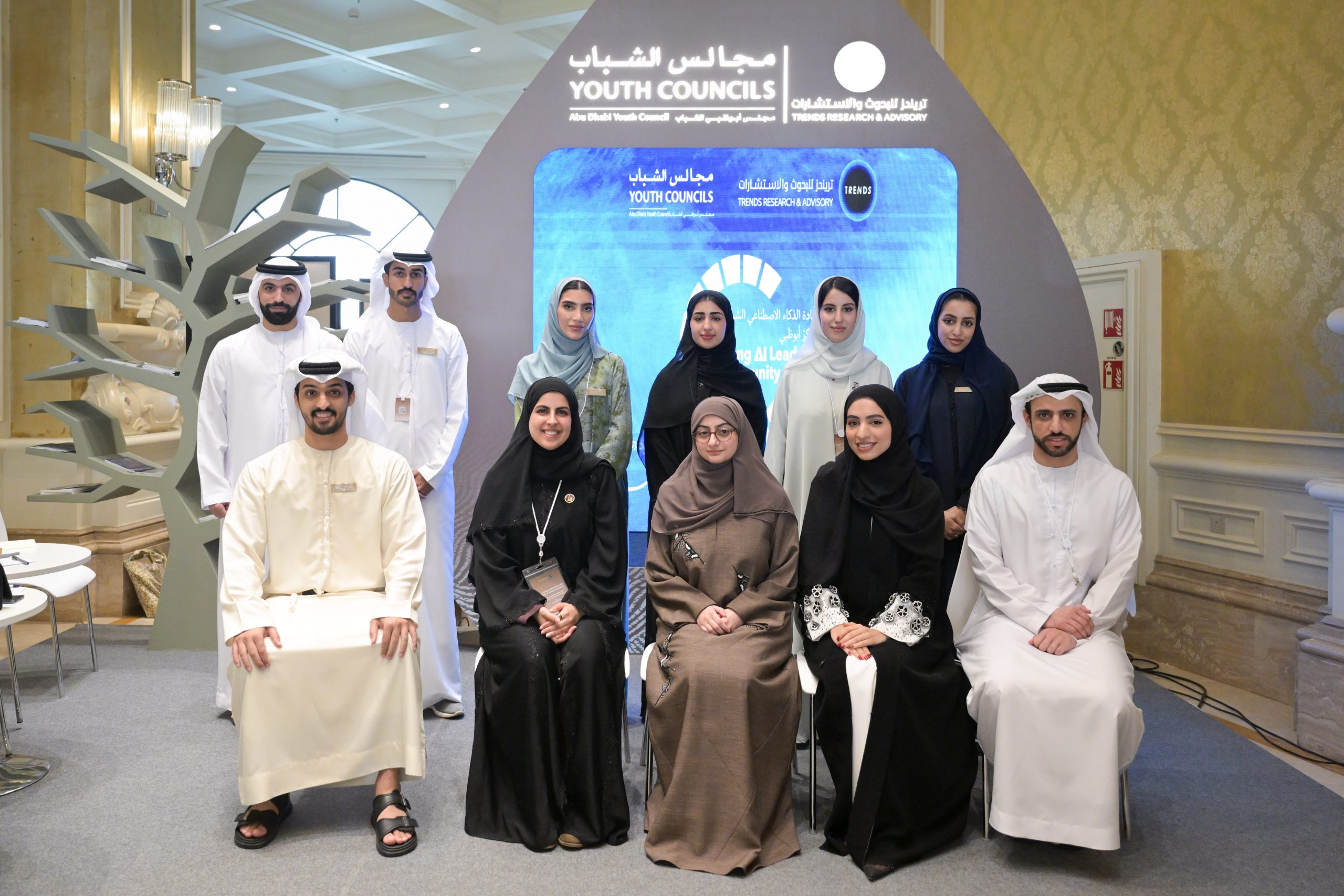
Youth as Leaders of Change
This session stressed that youth are the primary drivers of innovation in water security, presenting new ideas and pioneering projects to address the challenges of water scarcity. It called for strengthening youth participation in environmental decision-making processes to ensure their creative vision is integrated into future policies on water and sustainability.
Biotechnology and Genetic Engineering
This session affirmed that biotechnology and genetic engineering provide practical tools for reducing water consumption in agriculture by developing more drought-resistant and higher-yielding crops. It stressed that investment in this advanced scientific field offers promising opportunities to achieve food security while conserving water resources, making agriculture more efficient and sustainable in the face of climate change.
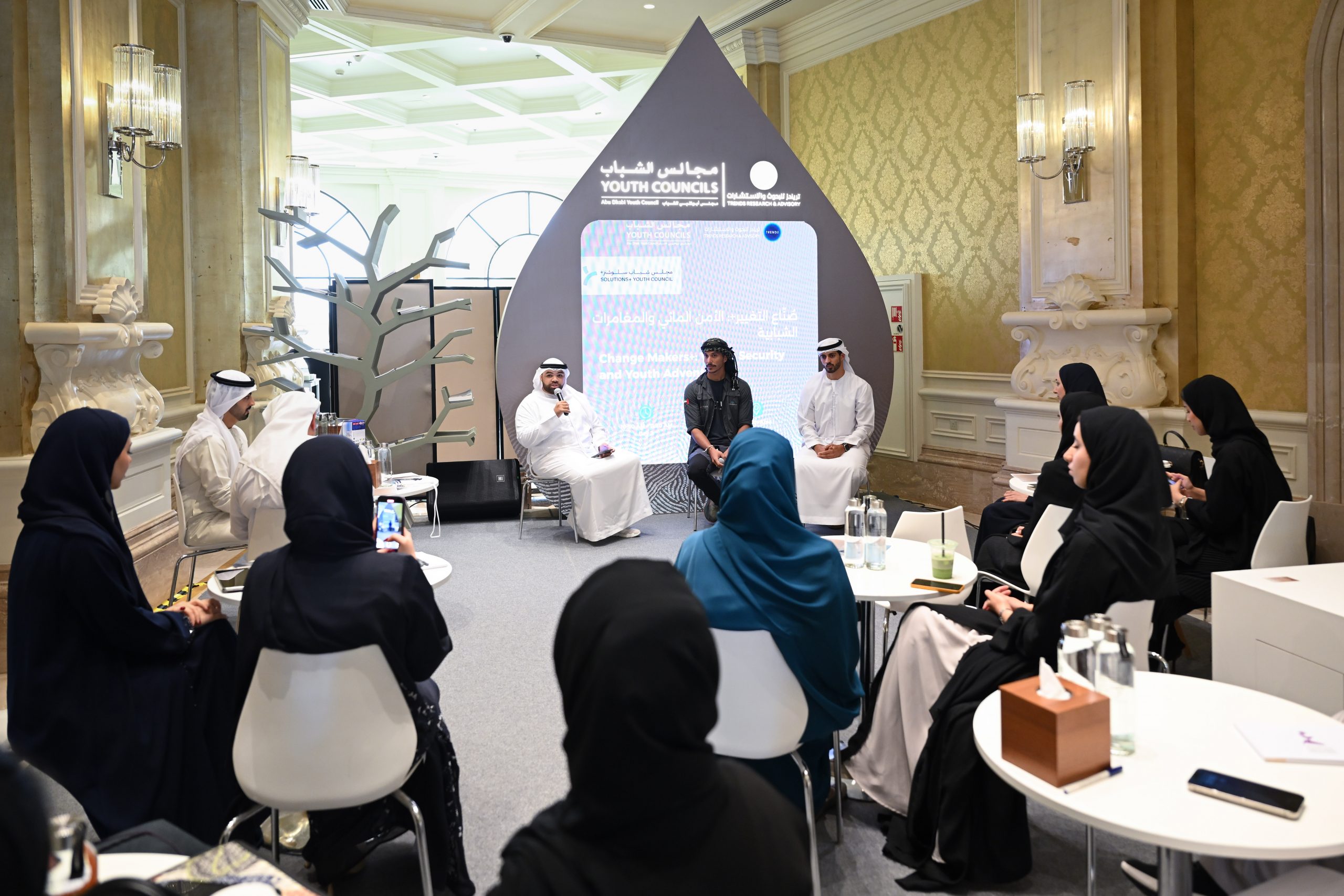
Final Outcomes
The 13 dialogue sessions and youth workshops organized by the TRENDS Youth Council in cooperation with youth councils on the sidelines of the 5th Annual Conference on Sustainable Water Security concluded that water security is a global strategic challenge requiring combined efforts and integrated scientific and practical solutions. Discussions affirmed that investing in youth potential, adopting advanced technologies such as AI, desalination, and genetic engineering, reviving traditional practices, and strengthening community awareness form the foundation for ensuring sustainable water resources and building a safer, more stable future for future generations.



